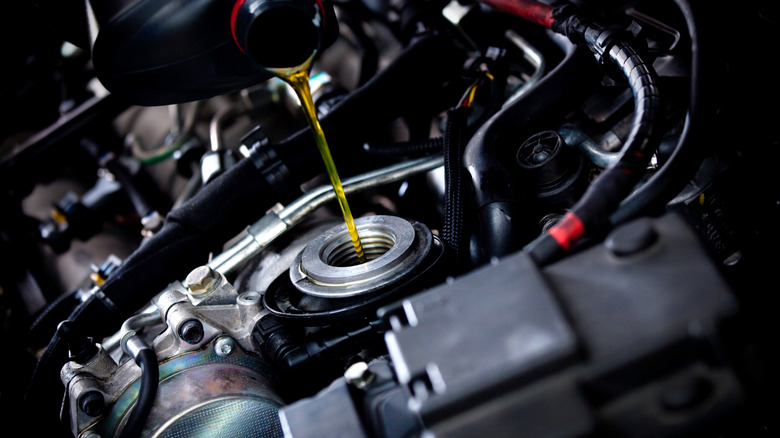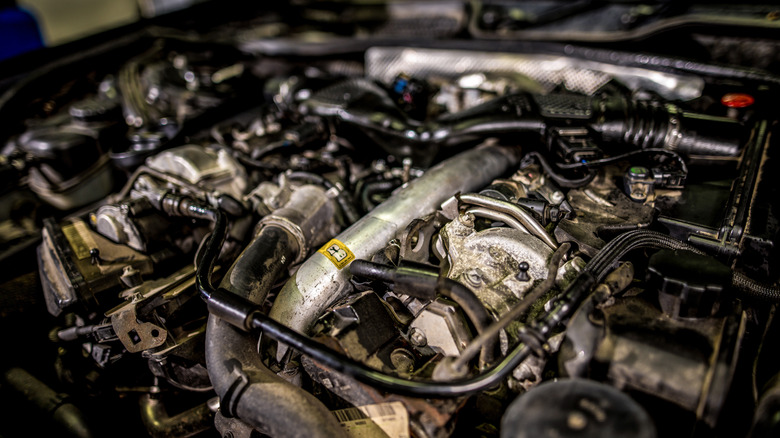How Is Diesel Engine Oil Different From Conventional Oil?
Driving a car with a diesel engine instead of a gasoline one, particularly if you already have experience driving a gasoline engine, is all about memorizing (and occasionally breaking) habits. One of the biggest of these habits is choosing the right fuel at the gas station. You always need to remember to use the diesel pump rather than the regular gasoline pump, and forgetting to do so could have some nasty consequences.
However, fuel isn't the only major difference in the use of a diesel engine. In addition to the fuel you put in the tank, you also need to be mindful of the oil you use in the engine. It doesn't sound like the kind of situation where there would be a tangible difference, as the oil isn't directly powering the engine, but it's still quite important.
There are a handful of small, yet key differences between diesel engine oil and conventional/synthetic oil, and could make the difference between clean operation and half-baked sputtering. Make sure you know those differences before you grab one of the popular brands off the shelf.
Different amounts of fuel additives
The first major difference between diesel engine oil and conventional oil is the presence of additives. To clarify, both kinds of engine oil are packed full with various chemical additives to reduce emissions and improve reliability. This includes stuff like corrosion inhibitors to prevent the creation and build-up of rust, anti-wear agents to keep the engine from damaging itself as it runs, and detergents to remove gross soot buildup, to give a few examples.
The big difference is the quantity of additives present in diesel engine oil versus the regular stuff. Since diesel engines are larger on average and create more sooty gunk in general operation, diesel engine oil has a greater concentration of the relevant additives to make up the difference. If you tried to use oil with the same level of additives as diesel oil in a regular combustion engine, it would be completely flooded with overwhelming levels of detergents, which could compromise the engine's structural integrity and cause it to belch smoke.
Diesel fuel's viscosity
Engine oil is designed to flow differently depending on the temperature of the engine it's operating in. When the engine is relatively cool, the oil becomes thick and goopy, and when it heats up, it starts to flow more cleanly and quickly, like water. Since a diesel engine is larger and operates hotter than a regular combustion engine, the appropriate oil needs to be able to accommodate the difference.
Diesel engine oil typically possesses a higher level of viscosity than the traditional stuff, which means it pumps at a much lower temperature and takes more heat to start flowing cleanly. Diesel engines need higher viscosity oil because both the heat and pressure within them is much higher than in regular engines. If you tried to use diesel engine oil in a conventional engine, it would need to output dangerous levels of heat just to get the oil properly flowing, which means your engine would turn into a veritable swamp at low temperatures.


